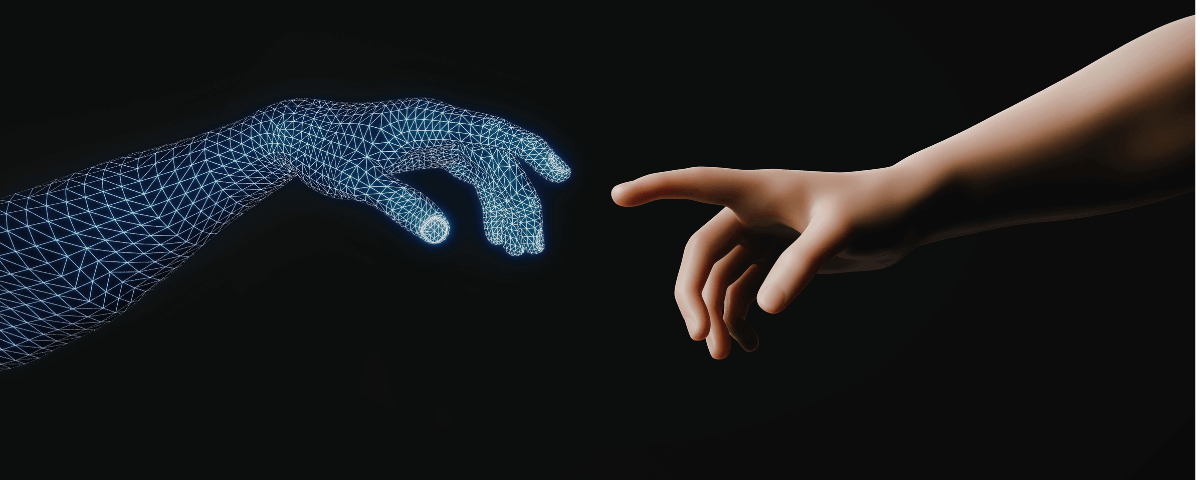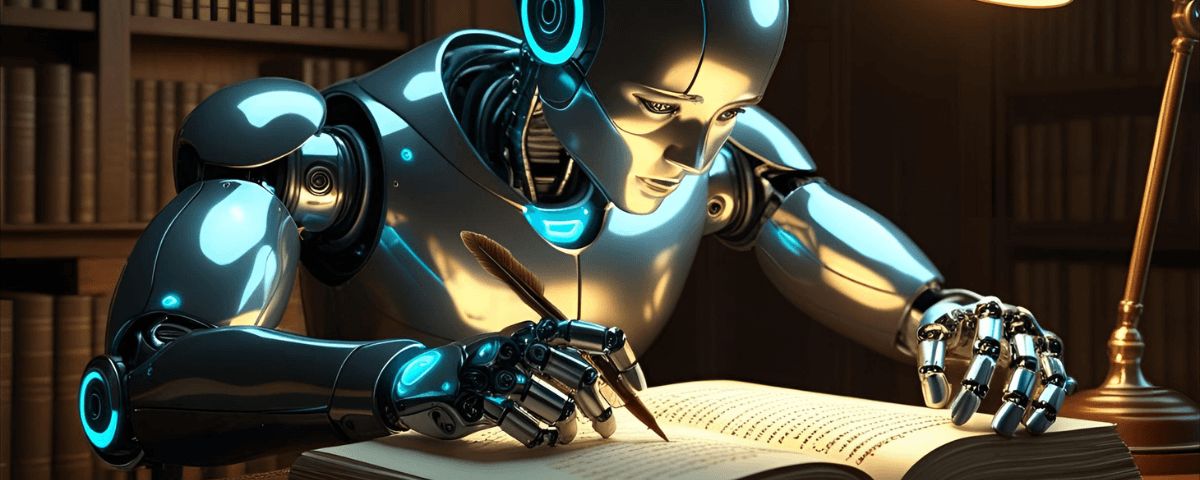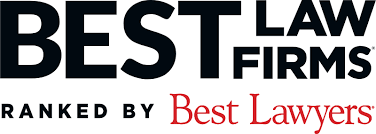C & T Newsletters
November 2025
New USPTO Director John Squires Ushers In Pro-AI Era, Promising Faster Patents and Broader Innovation Access
Takeaway: Under Director Squires, U.S. Patent and Trademark Office is moving aggressively to integrate AI into its operations, expand patent eligibility for emerging technologies, and tighten executive oversight, marking a bold new era for U.S. innovation policy.

New U.S. Patent and Trademark Office Director John Squires announced that the USPTO will fully embrace artificial intelligence technologies, calling AI “the most transcendent and transformative technology of our time.” In his first public remarks since taking office, Squires emphasized that existing patent law already supports AI-related inventions and pledged to keep the “door to the patent office wide open” to transformative innovations.
He sharply criticized the patent backlog inherited from prior leadership, labeling it a “dumpster fire,” but credited Deputy Director Coke Morgan Stewart with helping reduce it through new examiner hires, efficiency initiatives, and AI-enhanced search tools like the ASAP! pilot. Squires also asserted greater director control over PTAB review decisions, signaling a major shift in how patent challenges are handled.
USPTO Increases Trademark Filing Fees for Certain Circumstances Requiring More Information
Takeaway: Aiming to improve application accuracy and streamline examination, the USPTO has introduced new trademark fees that charge applicants for not providing required information and for excessively long free-form goods and services descriptions.

The U.S. Patent and Trademark Office has announced new trademark filing fees aimed at ensuring that applicants submit complete and accurate information at the time of filing. Under the updated rules, applications that omit required information may now incur an insufficiency fee calculated per class. This includes situations where the filer fails to provide the applicant’s domicile address, legal entity, a properly signed declaration, necessary translations for non-English wording, written consent when a person’s name or likeness appears in the mark, or a color claim and description when color is part of the mark. The USPTO’s goal is to reduce processing delays that arise when examining attorneys must issue follow-up inquiries for missing details.
The Office has also introduced new charges for lengthy descriptions of goods and services when applicants use free-form text. If the description exceeds 1,000 characters including punctuation and spaces, a fee will apply for each additional 1,000-character block within that class. For example, a single-class application that uses exactly 1,000 characters in the free-form field will incur a base fee, while one that uses 1,001 characters will be charged the base fee plus an additional excess-character fee. Multi-class applications are assessed per class under the same structure.
These updates reflect the USPTO’s continued efforts to streamline examination and maintain the accuracy of the trademark register. Applicants and counsel may wish to review filing practices to avoid unintended fees and ensure that all required information is included before submission.
Meta Documents Reveal Massive Revenue From Scam Ads as Regulators Intensify Pressure
Takeaway: Newly revealed internal documents show that Meta has long known its platforms were flooded with lucrative scam ads, deepening concerns that financial incentives have slowed Meta’s efforts to protect users, drawing increased scrutiny from global regulators.

Internal Meta documents reviewed by Reuters show that the company projected earning about 10% of its 2024 annual revenue, roughly $16 billion, from ads tied to scams, fraudulent schemes, banned goods, and other prohibited content, despite years of internal recognition that its platforms were inundated with high-risk fraudulent advertising. The documents reveal that Meta’s systems detected about 15 billion scam-linked ads shown to users each day and that the company collected an estimated $7 billion annually from this category alone, while often penalizing rather than banning advertisers unless automated systems were at least 95% certain the marketer was committing fraud.
Users who clicked on fraudulent ads were also more likely to be shown additional scam content due to Meta’s ad-personalization algorithms. Although Meta has argued the internal revenue estimates were rough and overly inclusive, it has not provided updated figures and acknowledges that enhanced enforcement has financial consequences. The documents also detail widespread internal concern that Meta’s products have become central to the global fraud ecosystem, with one presentation estimating the platforms account for a third of all successful U.S. scams and another noting that fraudsters find it easier to advertise on Meta than on Google.
Regulators in the U.S. and UK are already investigating Meta’s role in facilitating online scams, and reform efforts could materially affect the company’s advertising revenue. Meta says it has recently reduced scam-related user reports by 58% and removed over 134 million pieces of fraudulent ad content in 2025, but internal records show ongoing tension between reducing abuse and preserving ad revenue.
Supreme Court Ends Fight Over Whether the “Eleanor” Mustang Can Be Copyrighted
Takeaway: The Supreme Court’s refusal to hear the case means the “Eleanor” Mustang isn’t a copyrightable character, ending the years-long legal battle and cementing a tougher standard for claiming rights over on-screen car designs.

The U.S. Supreme Court has declined to hear an appeal over whether the famous “Eleanor” Mustang from Gone in 60 Seconds can be treated as a copyright-protected character, leaving in place a Ninth Circuit ruling that said it cannot. The long-running dispute began after Denice Halicki, widow of the original film’s creator, claimed that custom Mustang models produced under Carroll Shelby’s licensing deals violated her rights. Lower courts found that the “Eleanor” car doesn’t meet the legal standard for a copyrightable character because it lacks consistent, distinctive traits beyond its physical design, and they rejected Halicki’s contract and copyright claims.
Halicki argued the test used by the Ninth Circuit is confusing and unfair, but the Supreme Court offered no explanation in declining to take the case. With the decision final, Shelby’s side says it confirms a stricter approach to copyrighting movie-related character designs and plans to recover legal fees.
New York’s New AI Companion Law Brings Strict Safeguards and Transparency Rules Into Effect
Takeaway: New York’s new law marks a major step in regulating emotionally oriented AI chatbots by requiring clear disclosures and crisis-safety measures, signaling a broader shift toward stricter state and federal oversight of AI companions.

New York’s new Artificial Intelligence Companion Models law, effective November 5, 2025, requires companies that operate or provide AI chatbots acting as emotional or relational “companions” to adopt safety protocols and clearly disclose to users that they are interacting with AI rather than a human. The law applies broadly to any system designed to simulate an ongoing human-like relationship, such as remembering prior conversations, responding emotionally, or engaging in personal dialogue, and includes both developers and platforms that offer these tools to users. Operators must detect and respond to signs of suicidal ideation by directing users to appropriate crisis hotlines and must provide upfront and periodic reminders that the chatbot is artificial, including at the start of each interaction and at least every three hours during long sessions. Violations can lead to civil penalties of up to $15,000 per day, enforceable by the New York Attorney General, with fines funding statewide suicide prevention efforts.
The law aligns with a growing wave of state-level regulations in places like Nevada, Utah, Illinois, Maine, and California that focus on transparency, crisis intervention safeguards, and added protections for minors as AI companionship tools become more common in mental and emotional health contexts. At the federal level, the FTC is increasing scrutiny of consumer-facing chatbots, especially those used by children and teens. Companies offering AI companions should expect a patchwork of emerging state rules emphasizing disclosure, safety, and limits on autonomous emotional engagement.
New Bill Seeks to Move the Copyright Office Under Direct Presidential Control
Takeaway: A new bill from Rep. Morgan Griffith (H.R. 6028) would move the Copyright Office out of the Library of Congress and into the executive branch under presidential control, signaling Congress’ push to resolve looming separation-of-powers concerns over the agency’s current structure.

Representative Morgan Griffith has introduced the Legislative Branch Agencies Clarification Act (H.R. 6028), a bill that would remove the U.S. Copyright Office from the Library of Congress and transform it into a standalone executive-branch agency overseen directly by the president. The proposal comes as the Supreme Court reviews whether the Office’s current placement in the legislative branch violates separation-of-powers principles, given the executive-like functions it performs, including registrations, regulatory activity and quasi-adjudicatory decisions.
By relocating the Office, the bill aims to eliminate those constitutional concerns and align the agency more closely with other intellectual-property bodies like the U.S. Patent and Trademark Office. Supporters say the change would modernize operations and provide clearer authority, while critics warn it could expose copyright policy to greater political influence and weaken long-standing ties to the Library of Congress.
As the Court considers the structural issues now before it, H.R. 6028 signals Congress’s willingness to step in with its own solution, potentially reshaping how the nation’s copyright system is governed.
USPTO Issues New Inventorship Guidance for AI-Assisted Inventions
Takeaway: The USPTO’s new guidance confirms that only human beings can qualify as inventors, treating AI strictly as a tool and reinforcing that patent rights hinge on human conception, ensuring clarity and consistency as AI becomes more integrated into innovation.

The United States Patent and Trademark Office has released updated examination guidance clarifying how inventorship should be determined when artificial intelligence tools are used in the inventive process. The Office formally rescinded its February 2024 guidance and replaced it with a unified standard that applies equally to all inventions, whether or not AI was involved. According to the new framework, only natural persons can be inventors, and AI systems, no matter how advanced, cannot be named as inventors or joint inventors. The USPTO emphasizes that existing Federal Circuit precedent makes “conception” the core test for inventorship, requiring a human inventor to possess a definite and permanent idea of the complete invention. In this view, AI is treated the same as any other research tool, such as laboratory equipment or software, and its use does not independently confer inventorship.
The guidance confirms that when a single human uses AI in developing an invention, the standard analysis of conception governs whether that person qualifies as the inventor. When multiple humans are involved, traditional joint inventorship principles continue to apply. The Office also makes clear that the same rules extend to design and plant patents, reaffirming that all patent types require inventorship by natural persons. Additionally, applications claiming priority to foreign filings must share at least one natural person inventor with the earlier application, meaning priority cannot be based on a foreign filing that lists only an AI system as an inventor. With this update, the USPTO aims to provide a consistent and legally grounded approach as AI becomes more deeply embedded in research and development efforts.
Cislo & Thomas LLP Spotlight
Cislo & Thomas LLP in U.S. News & World Report’s Sixteenth Edition of the “Best Law Firms” Ranking
We are proud to announce that we have been honored as a Tier 1 Best Law Firm recipient in the 2026 Best Lawyers of U.S. News & World Report!
The 2026 rankings are based on Best Law Firms’ proven methodology that relies on qualitative and quantitative data on legal skillset, achievements and client successes collected through a submission process managed by Best Lawyers®. The rankings highlight a unique combination of high-quality law practices and the full breadth of legal expertise that has always been differentiated by the credibility and transparent rankings process.
At Cislo & Thomas LLP, we always strive to provide Quality Client Care® in helping you achieve your intellectual property goals, and we owe this honor to our incredible clients. So thank you!

Previous Newsletters



